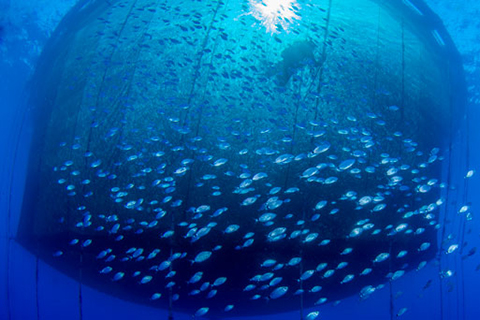
Summary
|
This team aims to address the myriad challenges that the growing aquaculture industry faces as it strives to fill the demand for seafood at a time when overfishing, climate change, and environmental degradation threaten the world’s marine resources. The team notes, “Nearly half of the world’s human population relies on the oceans for their primary source of food, yet experts agree that wild food production capacity of the oceans has plateaued and will likely decline in coming decades.” By identifying, developing, and testing integrated farming systems and species for aquaculture development along the Gulf of Mexico and Caribbean coastlines, the team hopes to begin tackling the regulatory, biological, economic, political, engineering, and health challenges that may stand in the way. For example, they note that different locales will have different engineering requirements to withstand the elements and remain affordable and efficient. “Through innovation, interdisciplinary collaboration, and stakeholder engagement, the results of this project will have far-reaching impacts not only in the University of Miami’s region of the Caribbean and Gulf of Mexico, but also throughout Latin America and in tropical coastal communities around the world,” the team wrote. |
Team
|
John Stieglitz, Marine Ecosystems and Society; Daniel Benetti, Marine Ecosystems and Society; Daniel O. Suman, Marine Ecosystems and Society; Brian K. Haus, Ocean Sciences; Michael Touchton, Political Science; Daniel E. Rothen, Division of Veterinary Resources; and Angela C. Clark, Rosenstiel School Library.
|




